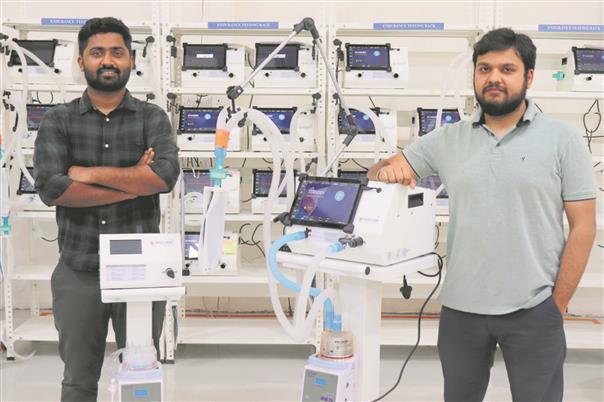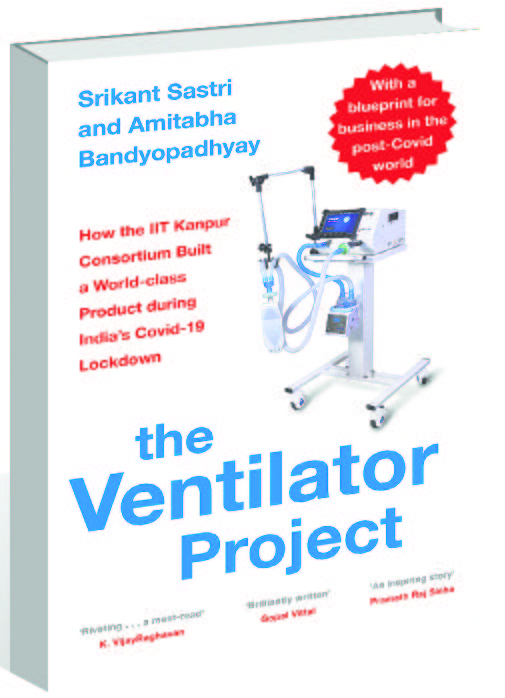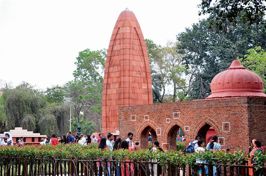The Ventilator Project: How the IIT Kanpur Consortium Built a World-class Product during India’s Covid-19 Lockdown by Srikant Sastri & Amitabha Bandyopadhyay. Pan Macmillan. Pages 248. Rs 599
Book Title: The Ventilator Project
Author: Srikant Sastri & Amitabha Bandyopadhyay
Rakesh Kochhar
As daily reports of mounting deaths due to Covid-19 emerged from Italy, one of the worst affected countries in the initial wave in early 2020, the whole world scampered to procure or manufacture masks, PPE kits and ventilators. India responded with the formation of the Empowered Group of Secretaries, which in March itself identified five industry giants (including Maruti, Hyundai and Mahindra) and seven startups to manufacture ventilators.
‘The Ventilator Project’ is the saga of one such startup, which successfully took up the challenge and produced Noccarc V310, an indigenous, low-cost ventilator. The book chronicles the events spanning the 90 days during which the IIT-Kanpur Ventilator Consortium task force — spearheaded by the two authors, Amitabha Bandopadhyay and Srikant Sastri — mentored Nocca Robotics, an IIT-K incubated startup, to design, manufacture, test and deliver the Noccarc V310.

The book makes for a compelling and riveting read, and leaves readers rooting for the ventilator’s success. The first chapter starts off like a thriller with the team racing against time and all odds to come up with a prototype of a ventilator in the very first meeting. Team members consulted YouTube videos for mechanical components, procured robotic components from hobby stores and used pressure sensors meant for drones to surprise everyone with their design.
‘The Ventilator Project’ first examines the task force’s journey of conceptualising, designing, innovating and getting the product ready for regulatory approval. The team also ran into several problems owing to the lockdown, ban on imports and changes in the technical specifications by regulatory bodies. The authors then prepare a blueprint that other innovators can replicate, offering key takeaways, and a three-step ‘starter kit’ that is a set of guidelines for startups in meditech — a space that is currently grossly underexplored in India.
Sastri and Bandopadhyay are liberal with the use of analogies from cricket and film production. In both these fields, older players have experience and wisdom while younger players have immense talent with mutual trust and minimal hierarchy, and mentorship is often subtle. Diverse players with individual talent come together in the IPL to learn from each other consciously or subconsciously, as also the crew in film-making. The same factors brought out the best in the 20-member task force for the project, which included the teams from Nocca Robotics and the IIT-K incubator, industry leaders like HCL’s co-founder Ajai Chowdhry, Indian Angel Network’s Saurabh Srivastava, and medical experts. The team’s commitment can be gauged from the fact that one of the doctors offered to test the ventilator on himself before putting it on a critical patient.
The authors vividly point out why India has failed in the meditech industry. They lament the lack of proper regulatory yardsticks, certifying mechanisms and licensing bodies for medical equipment in India. Getting approvals from the US Food and Drug Administration (FDA) and the European Conformity (CE) is a lengthy and costly process. India imports over Rs40,000 crore worth of medical equipment every year. But with 25,000 government hospitals, India is a huge market which should have its own certifying mechanisms.
Woven with inspiring anecdotes, innovative ideas, and motivating quotes, ‘The Ventilator Project’ is yet another classic work that highlights Indian frugal innovation and is a showpiece of Atmanirbhar Bharat. Noccarc V310’s success could become a replicable template for India, and it is time to ask why India cannot create its own Silicon Valley; we have all the ingredients — intellectual capacity, technical knowhow, talent, mentors, entrepreneurship and a desire to excel.














